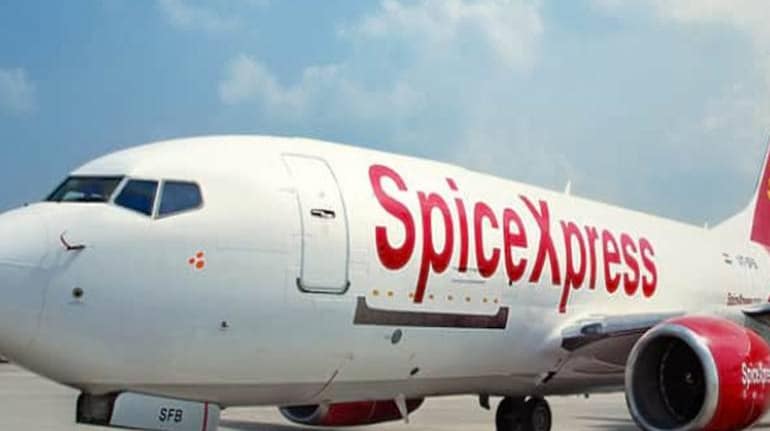



With preparations almost on a far footing, including over a dozen MoUs signed in less than two months, SpiceJet may have readied the most extensive network to deliver vaccines for any airline in India.
It is also a calculative risk, that some observers call opportunistic. If successful, delivering vaccines across the country may also keep Ajay Singh's core aviation business, which like its peers is yet to reach anywhere close to pre-COVID-19 levels, afloat.
The low-cost airline is driving the initiative through its cargo unit SpiceXpress, which has already proved its usefulness by limiting losses for the airline by clocking revenues of about Rs 550 crore in the first six months of the financial year.
The cargo vertical, which had floated a new unit Spice Pharma Pro to drive the vaccine business, is also working in tandem with SpiceHealth, the private initiative of the Singh family that will be the last stop in the whole supply chain to administer the doses.
Timing has been crucial. India is possibly just over a week away from getting its vaccines, after the government gave nod to Serum Institute and Bharat Biotech. The target is to vaccinate 30 crore Indians by July, translating to about 60 crore doses. It is a market that SpiceJet wants to corner.
The MoUs and the networkThe several agreements that the airlines has signed up, give a peek into the network it intended to create. Its partners include those who have fleets of specially enabled trucks, those with expertise in cold storage, marketing and specialists in packaging. SpiceJet also has brought on board a company, MyLogistics Gurukul, which specialises in training people on vaccine handling.
"The biggest task for the airline was to create the cold chain facility for transferring the vaccines safely. This has been done," said a senior executive from the industry, who is closely following SpiceJet's initiatives in vaccine distribution.
For instance, one of its partners is Celsius Logistics Solutions, which will give re- conditioning and packaging services for the vaccine consignments. Crystal Logistics Cool Chain Limited will enable warehouses, where the vaccines will be stored, with a temperature control facility. Pluss Advances Technology will supply 'precise temperature control boxes' that will be used to move vaccines on dedicated trucks.
Some agreements are to cover a specific market. Like the one with Global Entrade that will help SpiceXpress with first-mile and last-mile connectivity, specifically in all the North-East states.
"The next priority was training the staff of SpiceXpress and this, to a large extent, is done," said the executive quoted above. MyLogistics Gurukul is giving online training to more than 500 employees of SpiceXpress on cold chain vaccine handling. "The company, based in Delhi, is training in batches of 25, for four hours a day, over two days," a SpiceJet spokesperson told Moneycontrol.
Another executive added that SpiceJet, which already has signed an MoU with the Hyderabad airport's cargo division - GHAC - is in talks with other airports in India and overseas, to enable movement of vaccines.
"Hyderabad was the key as it is home for many pharma companies," said the executive. Bharat Biotech is headquartered in Hyderabad, which is also home to Dr Reddy's Lab, the pharma major who will be manufacturing the Russian Sputnik vaccine. Serum Institute is based in Pune.
SpiceXpress networkSet up in 2018, SpiceXpress is the first instance of an Indian airline launching a separate cargo vertical. According to its website, SpiceXpress has reached over 12,000 postal codes in India, averaging 17,900 flights a month. It has a total of 126 warehouses.
The cargo vertical has a fleet of 17 planes, including Boeing B737 freighters and Airbus A340.
It is yet unclear how much of this network will be used to deliver vaccines. "It depends on the contracts the airline is able to sign with the government or pharmaceutical companies," said the second executive quoted above. Singh's network in the corridors of power will come in handy, here.
Investment has been minimal. Much of the warehouse network was already established when the business was launched in 2018. And it didn't cost much to convert a commercial passenger aircraft to a cargo plane by removing seats.
SpiceHealth, headed by Singh's daughter Avani Singh, is also banking on a low-cost model to build a network of over 100 clinics by February. This will be part of the last-mile connections that will be used to administer vaccines.
Critical financial pushLittle is known, as of now, how much this aggressive push on cargo and building capability for vaccine distribution, will commercially help SpiceJet. But it could make critical difference, as the cargo business has shown till now.
The airline's net worth, which has been in negative territory for a while, has been eroding fast. And it doesn't help that despite the push from festival and year-end travel, air traffic may not get back to pre-COVID-19 levels for another three to six months, as experts point out. In a recent report, aviation consultancy CAPA India estimated domestic traffic in FY2022 is expected to reach 70-80 percent of FY2020 levels.
CAPA has also predicted consolidation in the industry. "Without very significant recapitalisation, one or more other carriers may head to the
National Company Law Tribunal once the suspension of the Insolvency and Bankruptcy Code is lifted after 31-Mar-2021," it said.
SpiceJet will not want to be part of that list. And SpiceXpress may just make that difference.
Discover the latest Business News, Sensex, and Nifty updates. Obtain Personal Finance insights, tax queries, and expert opinions on Moneycontrol or download the Moneycontrol App to stay updated!
Find the best of Al News in one place, specially curated for you every weekend.
Stay on top of the latest tech trends and biggest startup news.